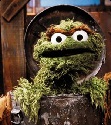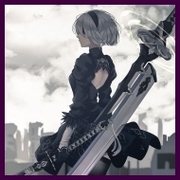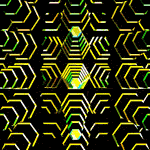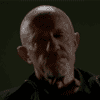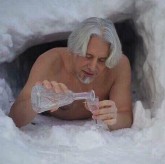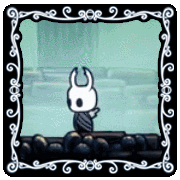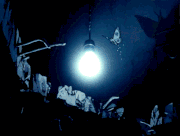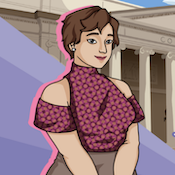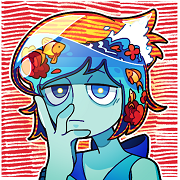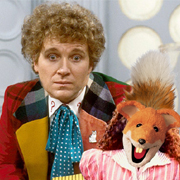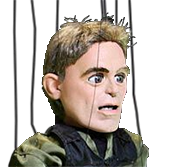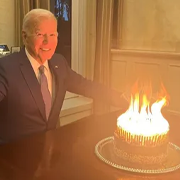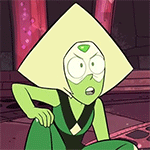Lipset and Rock On posted:In a way I love this bit, but it's never made a lick of sense to me. Is it supposed to be the case that TARDIS-induced God Rose saw what's next coming and decided to warn the Doctor but not, like, do anything about it? Bad Wolf isn't Rose, it's the TARDIS, and its using the translation circuits to change every word and sign into Bad Wolf to grab the Doctor's attention that serious poo poo is going down. Its using what limited communication it has to help him.
|
|
|
|
|

|
| # ? Apr 27, 2024 05:16 |
|
Doctor Who "Turn Left" Series 4, Episode 11 I hate, I absolutely despise "What If" episodes of television. I hate them. I cannot express in enough words how much I hate them. A long while ago, around the beginning of my Who reviews, I mentioned that I generally didn't like genre television. "What If" episodes aren't the sole reason I don't like genre tv, but they're emblematic of that distaste. "What If" episodes are, to me, the crutch of the lazy, unimaginative writer; it allows one to write an episode with unimaginably high stakes, and supreme narrative consequences- up to and including killing off main characters -while shying away from that affecting the metanarrative of the show as a whole. As I said way back in the review for "Boom Town", actions have consequences, and as a writer I view an episode like a "What If" one with the highest of contempt- because those episodes are constructed cynically, they're meant to give the audience what the writer thinks the audience wants to see- people dying, big world-changing events happening, confessions of love, romantic entaglements, arcing and narrative conclusions -without having to deal with any of the messy fallout from those big, actiony or emotionally huge setpieces. "What If" episodes are also, well, they're also disingenuous episodes. To me, "What If" episodes come off as the writer trying to hoodwink the audience into having them care about a reality that isn't the defined reality of the show, by giving them red meat in big swooping sequences and scenes to trick them into being fooled for the hour or so the episode runs, until the climax of the episode hits and it's revealed that oh, everyone is fine because none of it actually happened, ha ha. The thing is, audiences aren't that stupid, and neither are kids, the demographic Doctor Who is aimed at. Anyone with even the slightest amount of cognition of what is occurring within the episode will realize that the stakes of a "What If" episode are pointless- none of the events are "actually" happening within the show proper, and thus none of it matters. There's no tension to anything that occurs, because everything will be reset by the end. The episode, by definition of its framing narrative, becomes one massive waste of the audience's time, and the script plays into and extends that deception on the audience by tricking them into caring. Stuff like this is why genre television, and genre fiction in general, is usually not my cup of tea. Genre fiction, at its worst, is the haven of terrible writers who hide behind their conceits and the fictions' interpretations of reality to paper over their own glaring writing faults, to ignore things like "emotionally resonant characters" or "grounding of story" or "narrative coherency" in favor of more elves or the ultimate supervillain or the wonders of space. Worst of all, genre fiction explicitly allows for writers to disrespect their audiences by removing any narrative or interpersonal tension that's developed within the overarcing story, via anything from universe resets (superhero comics) to magic (fantasy) to science that's essentially magic (sci-fi). Actions always have consequences, and the "What If" episode has all action with zero consequence. The only time I like the "What If" episode, really, is when it's used for comedic and not dramatic ends. In dramas, the "What If" episode comes across as a huge waste of my time, since none of it matters, but in comedy the "What If" episodes can be really brilliant deconstructions and/or satires of either the genre of comedy it normally operates as or of the show itself. For instance, the Treehouse of Horror anthology series from The Simpsons is the most consistently hilarious series of episodes the show ever does, but that's due to the fact that the script recognizes the inherent silliness of trying to have in-universe hypothetical situations have genuine narrative stakes and doesn't even try for that over going for the laughs. Just because I don't, generally, like "What If" episodes of dramas doesn't mean I won't give these episodes as fair a shake as I can- when executed well, "What If" episodes work as fantastic symbolic pieces, able to deepen the audience's understanding of the characters they had grown to know and love. For instance, "Remedial Chaos Theory", my personal favorite episode of Community and one of my favorite episodes of television ever made, works incredibly well as a dramatic piece despite using a modified "What If" scenario as its central premise. Of course, it's also a hilarious episode of television, executed incredibly well, but there's quite a few moments of genuine character drama that work. Contrast to "Turn Left", an in my opinion fundamentally atrocious episode of television that was doomed from conception and only gets worse in execution. For the remainder of this review I'm going to directly compare this pile of loving garbage to "Remedial Chaos Theory", since it's the only other frame of reference I can use being that I almost never watch genre television. So, the premise of this episode is quite simple: There's a moment in Donna's life wherein she, in the car with her mother Sylvia, is at a figurative and literal crossroads between choosing to remain a temp at HC Clements, the company where she meets her eventual fiancee before getting spirited into The Doctor's TARDIS, or turning in the other direction at her mother's haranguing/insistence and working as an assistant for a man her mother knows. We know she ends up doing the former, but oh, what if she ended up doing the latter? Oh, I know I'm loving interested in finding that poo poo out! Oh, it turns out that life is totally loving miserable! Woah, what a goddamn surprise. As the episode ineptly reveals, Donna ends up comfortable and content with her life, until the events from the aforementioned "Runaway Bride", which ends with The Doctor's death via drowning from the River Thames (Donna wasn't there to snap him out of his genocidal funk, I guess). Donna is sacked from her relatively cushy job and is forced to go back to her temp job, but even more misery is on the way. With The Doctor not alive, Martha Jones ends up dying in what should've been her introductory episode (giving her oxygen to help someone else live), and Sarah Jane ends up dying saving the hospital where Martha worked. The episode continues on, revealing how utterly hosed Earth is because The Doctor wasn't there to save them- the replica Titanic from that goddamn episode "Voyage of the Damned" crashes into Buckingham Palace and destroys half of London, displacing millions- among them, the Nobles. The Nobles are then forced into public housing, packed in like tuna fish amongst several other families and forced to sleep on cots in the cramped kitchen. Then 60 million people are killed from the Adipose, and by the beginning of the third act Britain's rounding up families and shipping them off to work camps. Yep, a second Holocaust is happening, all because The Doctor is dead! Do you get what RTD is going for? Do you? This episode is as subtle as a loving hammer. About 90% of the episode consists of misery porn- there's really no other way to describe it. Literally everything that could go wrong does, both to Donna and to the rest of the world, and to me the script came across as so baldly emotionally manipulative it became nearly farcical at points. There's absolutely no letup within its narrative of having every single development turn out to be utterly horrible, and its constant name-dropping of past episodes comes across as cynically designed to impress upon its viewership a completely unearned emotional reaction. Oxxidation constantly bemoaned RTD's unwillingness to kill his darlings, to not respect his own stakes, and nowhere is RTD's failures in this methodology more present than in "Turn Left". Oh, sure, yeah, everyone in Torchwood dies and Jack Harkness is hosed on the Sontaran homeworld (Torchwood picks up the slack for the Sontaran two-parter), and Martha's dead, and Sarah Jane. Except they're not, because- and I need to stress this -none of this actually loving happened. Oh, and Donna's miserable and homeless from not meeting The Doctor, except she's not, because, and I need to stress this, NONE OF THIS ACTUALLY loving HAPPENED. Oh, and RTD finally respected the world-ending stakes of his episode conceits, with London on fire and America down a quarter of its populace and Britain doing its best Third Reich impression (okay, yeah, that Holocaust development is absurd no matter how you try and justify it), except they didn't, because, and I need to stress this, NONE OF THIS ACTUALLY MOTHER loving HAPPENED. Like...I'm not a total idiot. I knew the minute this cold-open ended that by the end of it Donna was gonna escape whatever sort of trance or whatever she was in, which meant that instantaneously- before the opening credits finished rolling -I was instantly pulled out of the episode. I had zero immersion, zero emotional or narrative investment in the events occurring, because the episode from the jump declared that everything that happened was fake, even within the context of the universe being a fake children's British genre show. In all honesty, having an immediate disconnect from the episode allowed me to view "Turn Left" as objectively as one realistically could have- and boy, is this episode poor, even beyond conceptually. Davies applies barely any nuance to any events that occur- as aforementioned, he slathers every single sequence and line of dialog in trite, forced, unearned emotionality to distract the audience from the fact that conceptually this episode was doomed before it even got out of the writing stage. Oxxidation is gonna argue that Davies does a make-good here, finally delivering narrative payoff for his world-ending stakes, when he's...well, he's just wrong. He's wrong for two reasons: One, the problem wasn't just that Davies made sure every episode ended with The Doctor Screwdrivering the world back to normal when it was seconds away from being exploded/invaded/enslaved/destroyed, it's that he established those stakes in the first place. The fact that this episode shows the logical endpoint of what would've happened if The Doctor wasn't there puts into high relief how poor RTD's episode construction is; the episode turns farcical as every single bad thing that, seemingly, could ever happen ever happens all at once, to the point where Donna is literally living the life portrayed in an average country song. Oxxidation will argue that it's the only way RTD could finally respect his own stakes; well, that's the point of the thing, his stakes were fundamentally loving stupid and "Turn Left" shows exactly how dumb they were. Two, none of this actually happened, so it's Davies not even respecting his dumbass stakes in the first place. It's Davies tricking the audience, tricking the viewer, into thinking that Davies realizes his own failures in plotting, except it's not because the entire episode is explicitly unreal. And somehow, Oxxidation got suckered into thinking this was decent narrative payoff. Let's compare to "Remedial Chaos Theory". If you haven't seen it, the conceit of the episode is seven friends sitting down to have dinner together, with one of the group having to go downstairs and bring the pizza. To decide who has to go, they decide to roll a die- and the episode then plays out, Run Lola Run style, showing the 6 distinct timelines that occur depending on the die roll. The reason "Remedial Chaos Theory" works as a "What If" episode and "Turn Left" doesn't, besides the fact that Dan Harmon is flat-out a better writer than Russell T. Davies, is that its conceit is fundamentally ambiguous. "What would happen if Troy/Britta/Annie/Abed/Pierce/Shirley had to go down and get pizza" is a much lower-stakes and therefore more flexible framing narrative than "What if Donna had never met The Doctor". If Oxxidation were to get onto gchat and ask me the latter question as a hypothetical, and he followed that up with "Oh, and you're Russell T. Davies", I would jokingly say something along the lines of "Everyone's dead and on fire". Which is almost exactly what happens. Which is the fundamental issue with the execution of this episode, wherein RTD borders on self-parody in his zeal to illustrate how terrible the world is now that The Doctor's now in it. There's also very little we didn't already know present in this episode; "Turn Left" feels almost clip-show-y at times, with RTD just reiterating the events of a bunch of past episodes shown from Donna's Doctor-less perspective, so beyond the fact that it's almost hilariously dour "Turn Left" feels quite superfluous as an episode of television making all of its myriad failures seem worse. The little that's genuinely new are also the best parts of this episode- Billie Piper's Rose periodically appears after the major events that occur within it to meet up with Donna and speak in vague, circular allusions to what is really going on- to wit, that there is time-eating beetle on Donna's back, a member of the Trickster's Brigade, which changes the life of its host and feeds on the unlived life. "But isn't Rose in an alternate universe, about to marry Mickey?" you may ask? Well, it turns out that in all universes, everywhere, there's an encroaching Darkness- capital letter intended -that's making all the stars go out, so Rose is attempting to track The Doctor down by visiting every other reality and world in turn. As she eventually explains to Donna, Donna is "the most important woman in the universe", so thus needs to ensure that real Donna (which we'll call Donna-1) meets The Doctor, by having the Donna that didn't meet The Doctor (we'll call her Donna-2) travel back in time and convince Donna-1 to turn left instead of right at the crossroads so everything goes back to normal. Before I trash it, I do have to admit that the Rose/Donna scenes are actually pretty great. Rose seems to have experienced a major character change in her time on another universe, and she arrives back in this episode after a two-year hiatus as smart, self-reliant, courageous, and independent- in other words, everything she wasn't during her time on the show (outside of some of the stuff she did in Series 2). Although she's essentially been turned into a female Doctor, especially for this episode, where The Doctor explicitly doesn't exist -all smug, unnecessarily vague statements, a certain overly-pleased-with-her-own-intelligence attitude, and grand monologues -Rose is still really fascinating and interesting within this episode, and Billie Piper's acting supports her new-found character. Honestly, Rose is the best part of this episode- her interactions with Donna-2 are fantastic and watching two confident, self-assured women interacting with no Doctor to color their scenes is genuinely novel. It just sucks that Billie Piper, in the real world, must've had some dental surgery or something because her face is distractingly puffy and odd-looking in Rose's scenes, and her speech is oddly slurred, as if Billie Piper is on painkillers throughout her scenes. Still, it's a testament to the progression of Piper's acting from where she started as a wooden, barely emotive actor to where she is now that she's still able to turn in a good performance, and arguably the best of the episode, in "Turn Left". Here's the fundamental issue with the Rose/Donna scenes though; they come off as unnecessarily stall-y. Rose meets Donna for the first time during the events of "The Runaway Bride"; their second meeting is immediately after the events of Martha's introductory episode, and by this point it's clear, to Donna, that something is definitely off with Rose's character, in that she's constantly wearing the same clothes and knows an unsettlingly large amount about Donna's personal life. However, the episode's still only in the end of act one, so Donna decides not to investigate it any further because at this point in the episode Rose can't just explain what the hell is going on. Like...RTD has zero command of his own narrative even within this fake, totally fake, never happened and is fake and therefore none of the events are worth audience investment story so all he does is treat the audience to overdone, over-emotive, cynically manipulative scenes of everyone suffering as the world falls to pieces interspersed with Donna interacting with this weird Time rear end in a top hat smug blonde until the climax demands that Rose explain everything. There's no sense of craft, of narrative pacing, even within an episode that by its own framing narrative gives Rusty a pass to have anything happen at all, every absurd character development and plot progression, so it's just a dull trudge of watching humanity suffer over and over and over and over and over and over because boy oh boy does it suck that The Doctor's not around. The fact that the episode is so miserable and focused on suffering taints the Rose/Donna scenes; it's honestly great that for once, an episode is focused on two female characters solving stuff without The Doctor to influence them, but the fundamental conception of "Turn Left" means every single scene that Rose and Donna have is fundamentally about The Doctor. Like...it taints what should've been a feminist, progressive, and most importantly narratively interesting conception, possibly the only decent one that RTD has for this episode, and turns it into an hour-long memorial for The Doctor. It undercuts its own conceit at the knees, because no matter how you slice it everything Donna and Rose does in this episode is about The Doctor, it's never really about their own individual characters. It's great that Rose tells Donna she's "the most important woman in the world", but there's the subtext of "because you met The Doctor" that taints the scene. Donna learning that she's going to die to save the universe is a great moment for Donna's character, except again, the refrain is "because you have to help The Doctor". Despite its other faults, "Midnight" was all about the failures of The Doctor's character, by himself, removed from Donna in any way whatsoever; "Turn Left" should've been, and clearly was conceived as, the Donna counterpoint to "Midnight" in that respect, which is conceptually very fascinating, except Davies betrays that expectation by centering it around The Doctor anyways- it's just that he's dead now. It turns what should've been a Donna episode and makes it into a Doctor one, which is one of the reasons why it's such a failure. Oh, and it needs to be mentioned- Donna is only in this episode in the very beginning and very end because Donna-2 isn't real and this whole episode was loving fake and explicitly never happened because it's a goddamn "WHAT IF" EPISODE, gently caress. Donna, and Catherine Tate in this episode, is honestly one of the weaker parts within it- the episode has almost zero understanding of its ostensible tone, so it tries to be this intensely depressing examination of a Doctor-less Earth but then has these random farcical elements that crop up. There are other bad examples of this, but Donna, staying true to her established character, ends up cracking wise for most of the episode, which comes across at best as a random tone change that undercuts what "Turn Left" is attempting to accomplish and at worst is nearly ghoulish, as Donna's just joking around while the apocalypse is happening. This is entirely a failure on RTD in writing Donna, not in Catherine Tate in playing her. What's less defendable is how Catherine Tate portrays Donna in the climax, where she's standing at Rose's insistence between a bunch of mirrors, viewing the beetle-enemy thing on her back, as she realizes she is meant to die solely to keep The Doctor alive. "LIAR!" she shouts. "YOU TOLD ME I WAS SPECIAL!" Tate sort of loses command of Donna and ends up portraying her within the climax, which is meant to come across as deeply emotional and reflective of Donna's sacrifice, too broadly, so Tate's performance feels really, well, really hammy. And as a result, the climax doesn't land, and the entire episode feels kinda pointless- or, more pointless than it already is. Even beyond conceptually, where this whole episode was fake and pointless and never happened and at zero point did I ever care about what was going on because I knew by the end of it we'd go back to the real Donna and she'd be fine, again I need to stress that "What If" episodes are loving stupid, executionally "Turn Left" is just too broad and obvious in all of its strokes, whether that be in its plot progression or Tate's portrayal or the weird jokey elements or its dwelling on how poo poo the world is because The Doctor is dead. There's almost zero nuance in any of its scenes, zero subtlety, which is more the shame because the one moment when "Turn Left" tries to be nuanced, is the one moment that genuinely works. As Donna experiences the whole second Holocaust thing as the weirdly comic Italian stereotype and his family get shipped off, she comes back indoors and tells Sylvia that she applied for a job with the army but was rejected because of her lack of qualifications. "I suppose I've always been a disappointment," Donna morosely states. "Yeah," replies Sylvia. It's pretty much the only downbeat that works within the episode, because its scope and aims are so conversely small- it's just meant to be a statement on how Sylvia and Donna interact and treat each other as mother and daughter, and puts a neat, slightly crushing bow on how bad things are where Sylvia doesn't even hide behind nagging and emotional abuse to impress upon her child how much she dislikes Donna. Things are so bad, that Sylvia can't even work up the energy to play her own gross emotional games with Donna's psyche- she's just given up. "Remedial Chaos Theory" ultimately reveals itself to be an episode about how Jeff, the main character, is ultimately toxic to his friends- the only timeline that unambiguously works is the timeline wherein he goes down to get pizza- every other instance is somehow tainted by his presence, both in large and in small ways. The aims of that Community episode are meant to illustrate that Jeff, whether or not he's a good person, is actively harmful to the group dynamic and cohesion merely by existing, by being himself. "Turn Left", in contrast, is an episode all about how important it is that The Doctor is alive. Except we knew that, because it's called loving Doctor Who, and this episode was really supposed to be about Donna, not The Doctor. "Remedial" ultimately proves to reveal a greater emotional truth about one of its main characters. "Turn Left" is meant to reveal, I guess, a greater...narrative? truth? I guess? But it's one we already knew, so beyond the fact that it's dumb because none of it happened, it's pointless because it just repeats over and over things the audience already knows, because they can read titles of TV shows. What was the point of this episode? Why does this episode exist? Anyways, we get to the final scene of the episode, wherein Donna-2 goes back in time and nobly sacrifices herself to cause a car accident so Donna-1 ends up never turning right. So, again, this entire episode was buildup to having this episode not loving happen. Great. What a loving waste of time this was. And it's even better when The Doctor shows up at the end and tells Donna, overexplains that none of it happened- that the Trickster's Brigade was unsuccessful in changing her life and as a result this whole episode was pointless. Amazing. Oh but in the very final scene of the episode Donna tells The Doctor about how Rose told her to tell him two words: "Bad Wolf". GREAT! Another callback to "The Parting of the Ways"! YES! The perfect way to end this piece of loving garbage episode! Rad. Cool. Lovin' it! The end is never the loving end. Oh, and as a postscript, that cold open was almost hilariously racist as gently caress. That might be the single worst cold open I've ever seen because, wow, wow the setup for "Turn Left" was incredibly racist. Donna randomly on a Chinatown world with the stereotypical generic Chinese background music, before meeting a black widow archetype maliciously sneaky asian fortuneteller, who communicates in broken English? Who then reads Donna's palms before siccing an evil entity on her? Holy poo poo, RTD, holy poo poo. I've never seen an episode of Who make as bad a first impression as "Turn Left" because, just, Jesus. Grade: D Random Thoughts:
|
|
|
|
Mordiceius posted:I'm finding myself agreeing with Toxx more than I disagree. He's a cool dude with mostly right opinions. Don't ever fool yourself into believing this
|
|
|
|
This episode is basically It's a Wonderful Life except with Lionel Barrymore replaced by mass slaughter.
|
|
|
|
Toxxupation posted:[*] Donna Status: Catherine Tate hammed it up a little too much this episode. Also she WAS BARELY IN THIS EPISODE BECAUSE EVENTS THAT DIDN'T loving HAPPEN DON'T COUNT FOR THEIR CHARACTER. Except Donna does still remember all of the memories of the alternate timeline afterwards, doesn't she? Otherwise, she wouldn't have been able to pass on Rose's message. So of course it counts for the character. Like in The Inner Light or Hard Time in Star Trek.
|
|
|
|
Remedial Chaos Theory is a big smelly pile of Dan Harmons wet wipes. Turn Left is not a masterpiece either, mainly for hammering the point of "YOU ARE SPECIAL DONNA TOTALLY NOT A BORING EVERYDAY PERSON" which is a cowardly way to build a character. What is wrong with being just a person?
|
|
|
|
The main thing I took away from this episode how much of a pile of poo poo Donna's mom is. I mean, who behaves like that? Donna does what you ask, gets the job you want, gets promoted and then when she's fired when a disaster happens, she's a failure? gently caress you, mom.
|
|
|
|
Toxxupation posted:[*] Rose Status: Actually Kinda Owns. Did hell just freeze over?
|
|
|
|
You know as well as I do that it didn't.
|
|
|
|
I predicted you'd give this a C because I was hedging my bets. I should have had more faith in you.
|
|
|
|
I don't understand why you think that the events of an alternate reality have to "matter". There's usually two purposes to this kind of thing: to reflect on the main narrative by demonstrating an alternative and to tell a story that cannot fit into that main narrative. You don't have to think that they did a good job of telling the story (and obviously a lot of people in this thread think the show didn't), but many of your objections seem to be more about refusing to connect with the structure of the story, crossing your arms and harumphing because it's a story in a bottle. Anyway, it's time for some background information on the production on this season. About a month before this episode aired some information came out that colored people's perceptions: David Tennent got another job. Tennent had taken the role of Hamlet for an extended run in London and that meant that the show was about to change. The Doctor Who production office was notably quiet through this; they didn't say anything about anything until after the season was over.
|
|
|
|
Doctor Who "Turn Left" Series 4, Episode 11 Oh, okay, so Occ's actually going to call me out in this one. That's the road he's taking. Grab your banjos, folks, because there's gonna be some duelin'. I'll put this front and center - "Turn Left" is my second-favorite Davies episode, which for me was such a delight given that it immediately followed "Midnight." It's a distant second, given that it's a much more typical Davies script and therefore about as well-assembled and attractive as a 1950's jalopy covered with pigeon poo poo, but there's a lot about it to love, and those bits survived my rewatch. Now, normally I'd just gush about what I like and point and laugh at what I didn't, but Occupation decided to make this a personal issue, so I'm going to have to stir some rebuttal into it as well. All of this barely after the dawn of a day when our dear old America, to no one's surprise, missed its own chance to turn left (turn left, America! nooooo), so I'm just full of piss and pepper sauce. So, let's begin. Occ said about a dozen times in his uniquely unsubtle way that what-if episodes offended him "as a writer." Well, I'm not a writer, just a person who occasionally writes, but I can lay out what I think is one of the central tenets of effective - effective, not necessarily good - fiction: it bridges a gap between its own text, and some neurosis of its readers. I use the word "neurosis" in the sense of an idea that is covert in the reader's mind, often fixative, usually negative, but still minor enough to be socially acceptable should it come to light. Fiction throws out its hooks, snags those concealed thoughts, reflects them in the text, and generates reader investment. As an example, let's use the Internet's favorite go-to gently caress-you title, Twilight. One popular theory of how that series became such a smash hit is that the sexual repression of its creepazoid author combined with the pseudo-Victorian sexual sensibilities of the general vampire mythos pureed into what was essentially a softcore porn novel in disguise; a series whose female protagonist is constantly swooned over by hunky but thinly characterized guys who did a lot of looking, but very little touching. That scanty characterization allowed the series' sizable female fanbase to impose their own fantasies onto the characters, to create their own private bodice-ripper stories within Twilight's own shoddy world, and that unconscious self-insertion was the dark engine that powered one of the most insufferable franchises of our decade. This is what I mean by neurosis - you're not going to have thousands of bored housewives running to the bookstore screaming "I DREAM OF LYING IN EDWARD'S ARMS BECAUSE MY HUSBAND FAILS TO PLEASE ME," but for many readers, bent quietly over those books, some sliver of that idea is turning in the back of their mind, inadvertently snagged by Meyers' fiction. Of course, then she started getting a little too weird even for those people and the whole construct fell apart, but it was a nice experiment while it lasted. Remember - effective fiction, not good fiction. It can be one or the other, it can be both, but the states are not mutually inclusive. Which is fortunate, because if writing had to be well-constructed in order to hook its audience then Davies would have been poo poo out of luck and jolly well hosed from the word go. "Turn Left," as Occ mentioned, in all-caps, bold, italics, and underline, because he so often believes that volume will suffice for a lack of knowing a single goddamn thing, is a "what-if" episode. Sticking to my terminology, what-if episodes tend to aim for one neurosis in particular - the fixative, sometimes obsessive idea of how one's life would be different if one, or several, small events changed. What if I had met this person, and not that person. What if this person had lived, and that one died. What if I had been here and not there, what if I had done this and not that, what if they had called now and not then, what if, what if, what if. What would follow. What new dominoes would fall. What new pattern would be formed. On the personal scale, the impersonal, the large or the small, and how would they be connected - how are these events tethered to our lives, our lives tethered to the lives of others, how invested or indifferent are these parts to the whole. What if. In case it's not clear, this is an idea very close to my heart, so "Turn Left" had an easy route into my good books from the beginning. An episode of this type was bound to come along sometime in a show about time-travel, but Davies decided to swing big and make the one's plot one long callback to his last two seasons, plus an evaluation of his latest Companion, plus his favorite character's big re-entry into the series after a whole season of foreshadowing. So, did he succeed? With one hand, I make a vague see-sawing gesture. With the other, I flip off Occupation so hard that my middle finger cramps. Occupation's central criticism of this episode - that none of the events are relevant because none of them ever happened - will be addressed later. For now, I'll lay out the episode as it appealed to me. Let's quickly break down what happens when Donna decides to turn right and avoid ever becoming the guinea pig for a giant red spider-lady's secret Science Magic plot to hatch a bunch of babies. The Doctor, either out of lack of foresight or depression at losing Rose, lets himself get smacked with the entire Thames River, which kills him too fast to regenerate. Without the Doctor's presence, both Martha and Sarah Jane die in order to stop an old-lady space vampire's plot to destroy the world with a piece of hospital equipment, on the moon. "Voyage of the Damned" once again ruins everything for everyone, as the Titanic 2.0 nukes London and creates tremendous international unrest. Without London as a testing ground for the Adipose pills, Evil Alien Poppins moves overseas and hits the killswitch as scheduled, turning a huge chunk of America into waddling fat babies (alien ones, I mean). Torchwood suicide-bombs a spaceship fill of alien potato soldier-men so that they can't kill the world with gas emissions. England, in its desperation, does whatever large nations with no international oversight seem to do in desperate situations, which is commit genocide. And finally, the stars begin to go out. Read back over that last paragraph - there's a li'l bit of tonal discordance there, huh? Part of what I like so much about "Turn Left" is that it finally shows us what would happen if Davies nutted up and saw through the enormous stakes he laid out in every episode; Earth turns into an absurdist, tragicomic nightmare where the banality of martial law, limited supplies, and cramped living spaces are juxtaposed with and constantly worsened by assaults from creatures that wouldn't be out of place in a one-off Sesame Street sketch. What's even better is how those stakes are resolved. If humanity had just sat meekly by and weathered every salvo without the Doctor's aid then it would have gotten tiresome fast, but instead most of the crises are averted, albeit with significant losses, by the Doctor's former associates and other ordinary humans. Humanity might still have that survivalist willpower the Doctor crows so much about, but they lack his deus-ex-sonic plot bullshit, and so every victory hacks off another handful of characters that we already knew while Donna, divorced from all these events, looks on in disbelief. If I had to point at one thing that really grabbed me about "Turn Left," it would, as usual, be Donna. Not her character, specifically (and definitely not that stupid twenty-five cent bug prop hitching a ride on her), but the way she personalizes the after-effects of all the damage that hits the Earth as a result of her decision. Here, let's go over events again, but instead, let's limit them to Donna exclusively. She gets an administrative job with a small photocopier business, and is promoted to its owner's P.A. During her celebration party, a giant snowflake-web lasers the city and her friends all run away in terror without adequately explaining why. Her boss fires her due to the loss of business after the draining of the Thames, and she's forced to go home and swallow her mother's shame once again. Her family gets a little bit of relief during a surprise Christmas getaway, which is interrupted again by the nuking of London. She's forced to live in a ten-foot square kitchen with Italian Danny DeVito, and just when her family and theirs start getting to like each other, giving each other a little light and a little hope amidst all the ridiculous tragedy happening on the global scale, "England for the English" ruins that as well. Donna's personal story ends with Sylvia staring desolately into the camera, her daughter a mere blue in the background; with one word, Sylvia's always-present emotional abuse hits its peak, where she agrees that Donna is a failure, was always a failure, and will always be a failure, because there's no longer anything but failure left in their future. What if. What if. What if. Because just because things are different doesn't mean that they'll be better - or that they'll always be worse, or that they won't whipsaw through the good and bad just like the lives we live now, to the point where we might as well start wishing for what-if stories in our own what-if stories. Donna's decision to turn right starts well, but obviously doesn't stay that way, and the way Davies keeps inserting, unsubtly but effectively, those little hope spots into her story to relieve the relentless hostility of her mother and the self-loathing she feels for herself only to smash them down again gnawed at me like nothing else he's ever done. At the back of every wish for things to be "different" comes the second, even more hidden wish "and let them be better," coupled with the certainty that one is impossible and the other less possible still - and it's that neurosis that "Turn Left" drags out, not through the slow, absurdist destruction of the Earth and the stars, but through Donna's initial moment of acquiescence worsening and festering until her own mother effectively disowns her. That is the story. Those are the events portrayed. And regardless of whether those events are reset to the status quo at the end of the episode, the events they showed remain with us, the audience - in our experiences, our own private histories. Why Occupation decided to fixate so slavishly on the "non-canon" aspect of what-if episodes and totally disregard the equally obvious aspect of audience engagement eludes me! If I wanted to be uncharitable, I could make the conjecture that he thinks holding strong, borderline-irrational prejudices against certain things will make him more like a real critic and less like one more yahoo making long-winded posts on the Internet amidst ten million others just like him. If I wanted to be even less charitable, I could follow that up by making the obvious statement that he isn't fooling anyone but himself. But what's more likely is that the hooks "Turn Left" cast didn't quite find purchase with him the way they did with me - that, plus his own aggressively bull-headed way of Caring about things, made this episode a loser in his eyes from the start (seriously, screaming about what-if episodes was the second thing he did during our watch, right after he finished screaming about racism). It doesn't help that, this being a great big Davies episode, there's still plenty of shonky bits poking out here and there. First, Rose came back. As she does. I can't completely drat her placement in the script, since Donna's skepticism was a key part of her pre-Doctor character and there's no way she would've riddled out all these events without the help of some external authority, but Rose re-entering the series as some mysterious dimension-hopping spirit guide does little to soothe those of us who got real tired of her in the first two seasons. And yes, if there's something on Donna's back, there's probably something in Billie Piper's gums. Her odd speech and slightly off appearance was remarked upon even by the actual, professional critics of the show, and while Piper herself still turned in an acceptable performance, her Novocain-ish presentation didn't make her return any easier to bear. Also completely baffling is the framing scene in the cold open. It's like Davies saw "Fires of Pompeii," with its bustling market and tons of extras, went, "I'd like to do something like that," and then went and was himself all over the place. Even if Chinese markets are actually like this (for all I know they might be, hell, there's plenty of things I'm ignorant about), the cartoonishly stereotypical appearance of the market and its accompanying soundtrack is a bit of a head-tilter even before the sketchy Chinese mystic sashays onto the scene. Only Davies would be able to make something so irrelevant so drat jarring, and that cold open leaves a weird flavor on the tastebuds of the mind that takes a while to wash out. The Time Beetle itself is also disappointing, though more in presentation than concept. The constant re-iteration of "there's something on your back" does help add to the feel of wrongness in the episode overall, but it's used too often and the bug's constant chittering is even worse. The bug itself looks ridiculous, like something you'd snatch out of a Halloween bargain-bin, and its presence is, in the end, totally extraneous to events - the palm-reader could have just as easily done this whole shebang with ethereal racist time-magic and left the bug in the prop room. I don't agree with Occ's assertion that the Weeping Angels would have sufficed for this - not only does it really not fit in with the Angels' modus operandi, but as an antagonist they'd have necessitated way too much setup in the opening and crowded out the what-if plot itself - but the "Trickster's Brigade" smacks of a hasty plot device to get the ball rolling, and its cheapness turns what should have been a creepy moment into a laughable one. But, now we're at the end. And the episode's final twist was that its events did happen, because whatever made the stars go out is collapsing into the universe proper - it's another three-parter bait-and-switch, though with, regrettably, less Derek Jacobi. But even if this episode hadn't been connected to the finale, would it have mattered? Read all the poo poo I just wrote and take a wild guess what my opinion would have been. Fiction is, at heart, always asking "what if?" And even when that question gets a little bit more literal than usual, and shows us a divergence of events - however hastily corrected - within a prior fictional narrative, the events it shows can still be valuable to the audience, confirming or defying the what-if questions we all ask ourselves. Donna's life, obviously, doesn't get better from listening to her mother's advice all the way back then, and however overblown and sometimes farcical the events of "Turn Left" become, they still have some analogue in the questions we ask ourselves, and probably even the primary audience. Who's to say kids don't ask "what if" sometimes? Who's to say they won't start giving those questions more thought after seeing this? The actual events of "Turn Left" might dissipate, but their effect lingers on. Not in the least showing us what we probably knew all along, that Donna herself would continue to be excellent even if she'd never met the Doctor. Tate's performance is a centerpiece as usual - the way Donna slowly loses her grip and succumbs to her own feelings of inadequacy as her relentless force of personality fails to shout the world back in order, the way she giddily re-experiences the TARDIS' spatial weirdness a second time as if relieved to finally have something to be surprised about for a change, and her furious demand for Rose to stop pussyfooting around and tell her what she can actually do to put the world right, is all enormously entertaining to watch. Her quiet suicide, while a striking moment, is still little more than a footnote after everything it followed. But now we get to see what's to come - the season finale approaches, and the Age of Donna is coming to a close. Please don't forget. Oxxidation fucked around with this message at 22:04 on Nov 9, 2014 |
|
|
|
The Titanic was supposed to wipe out the entire planet. RTD set his stakes so ludicrously high that they were prohibitive to an episode where, explicitly, anything can happen and nothing matters, so he had to back off. Also the Doctor spent that whole Sontaran episode smugging about how much smarter he was than everyone else, but in the end those dim fuckers at Torchwood would have done just as good a job.
|
|
|
|
Toxxupation posted:Do you get what RTD is going for? Do you? This episode is as subtle as a loving hammer. About 90% of the episode consists of misery porn so thats how RTD came up with Miracle Day
|
|
|
|
If Turn Left had committed to its loving plot it wouldn't have been as offensively bad. It was an episode about Donna being trapped in an essentially artificial world (which was, incidentally, done REALLY loving WELL two episodes previously, remember that?), but they couldn't bring themselves to do anything except force her to sit down and watch a 25 minute educational video about how bad the world would be without the doctor.
|
|
|
|
Like the irony is that if you think about it, the episode actually DID have real stakes- if Donna tripped and broke her neck on a coffee table, all that awful stuff really did happen. If they had explained that fact toward the beginning instead of the end and put Donna in danger the episode could have been pretty cool. But RFD was too busy masturbating all over how awesome the doctor is and then he looked up and there was only 10 minutes of screentime left.
|
|
|
|
Would it have, though? The Doctor says that the alternate path was an actual alternate timeline, not a changing of the actual timeline. Meaning that all Donna accomplished was killing off the alt timeline and carrying back a message that the Doctor gets anyway, thirty seconds later.
|
|
|
|
Bobulus posted:Would it have, though? The Doctor says that the alternate path was an actual alternate timeline, not a changing of the actual timeline. Meaning that all Donna accomplished was killing off the alt timeline and carrying back a message that the Doctor gets anyway, thirty seconds later. Well then what's the not-weeping-angel feeding on then, exactly?
|
|
|
|
On the other hand if you have a pet beetle that feeds on timeline changes why would you WANT to have it feed on someone extremely important, it seems like that'd put you yourself personally in danger.
|
|
|
|
30.5 Days posted:On the other hand if you have a pet beetle that feeds on timeline changes why would you WANT to have it feed on someone extremely important, it seems like that'd put you yourself personally in danger. That's what the Doctor says in this episode iirc, something like how for most people there's just slight adjustments to the existing timeline.
|
|
|
|
I mean, I agree with Toxx on the following point: if you don't like "what if" episodes of television, you should not be watching genre fiction. But jeez, man, condemning "what if" episodes that have no relevance because "they didn't really happen" really does immediately condemn some of the greatest episodes of every science fiction that ever existed, even some of the anthology ones. And calling them "the crutch of the lazy, unimaginative writer" is just plain wrong. Like, yes, there's taste and whatnot, but in a Roger Ebert, we-have-to-call-some-things-objectively-bad-or-good in critique way, that opinion is it. An Occurrence on Owl Creek Bridge and Ubik and The Inner Light are all "what if" stories and all of them are great.
|
|
|
|
Every story is a "what if?" But really, how can you claim to have watched it objectively when you went in hating the concept to begin with? Look, if you're seriously getting this fed up with RTD's writing then maybe you should start taking a break between seasons or even just watching a show to enjoy it, rather than like an unpaid job for everyone reading this thread.
|
|
|
|
|
He's at the end of series 4, starting to have breaks now because of RTD is a bit redundant.
|
|
|
|
30.5 Days posted:On the other hand if you have a pet beetle that feeds on timeline changes why would you WANT to have it feed on someone extremely important, it seems like that'd put you yourself personally in danger. Well for Donnas personal timeline it only went back a couple of years. If that's the standard idea then it wouldn't give many changes. They just lucked out by getting both someone extremely influential and someone who was a time traveller.
|
|
|
|
Hell I was sick of RTD by this point, and I like these latest two episodes.
|
|
|
|
Tempo 119 posted:The Titanic was supposed to wipe out the entire planet. RTD set his stakes so ludicrously high that they were prohibitive to an episode where, explicitly, anything can happen and nothing matters, so he had to back off. They all died though. The Doctor at least convinced Ratigan to throw himself under the bus instead.
|
|
|
|
Senor Tron posted:Well for Donnas personal timeline it only went back a couple of years. If that's the standard idea then it wouldn't give many changes. They just lucked out by getting both someone extremely influential and someone who was a time traveller. I like to think that's why Slightly Racist Palm Reader was so freaked out in the end - not because Donna gave her beetle a seizure, but because she felt the universe cracking apart after the beetle latched on and spent the next 35 minutes going OH GOD HOW I DO TURN THIS THING OFF
|
|
|
|
Dabir posted:They all died though.
|
|
|
|
Tempo 119 posted:The Titanic was supposed to wipe out the entire planet. RTD set his stakes so ludicrously high that they were prohibitive to an episode where, explicitly, anything can happen and nothing matters, so he had to back off.
|
|
|
|
I would love to see Occ's examples of poorly executed "What If" stories in genre fiction. Also, if he also hates counterfactual stories. This distaste for that particular trope seems strange to me, because Occ fundamentally misunderstands the point of them. You take a character out of a comfortable setting, and put them into a wildly different reality, and it throws certain things about them into relief, gives some perspective. When used right, the alternate universe story is a character development tool. When you ask, where would they be if they decided this instead of this, it allows you to see better how the character has grown and changed within the course of the story thus far. It should definitely not be used until deeper into a series, when there's been some dramatic changes for the characters. I am not saying this to defend Turn Left, but to defend the entire concept of the "What If" episode. Can't remember if I liked Turn Left or not. Probably I did? But I'd probably like it less if I watched it again, as with all RTD stories. Saw The Girl in the Fireplace on TV recently, and it was not as good as I remembered. And the Cybermen two-parter was worse than I remembered. Although that also had a what-if element that was probably the only remotely effective bit of it.
|
|
|
|
Oxxidation posted:I like to think that's why Slightly Racist Palm Reader was so freaked out in the end - not because Donna gave her beetle a seizure, but because she felt the universe cracking apart after the beetle latched on and spent the next 35 minutes going OH GOD HOW I DO TURN THIS THING OFF See, that's the weird bit. The way the fortune teller behaves at the end makes it seem like she was randomly targeted (palm reader wanted to feed her pet), but the fact that the palm reader knew her name and the whole beginning part of the episode made it seem like she was being specifically targetted (someone wanted the Doctor dead).
|
|
|
|
You're surprised by the fact that a fortune teller knew someone's name without being told?
|
|
|
|
Yes, because usually they're fake and have to cold read you to get your name. The fact that she calls out Donna Noble's full name is played like she was targeting this person, not that she read her mind or something. edit: And, yes, I will admit that most psychics / fortune tellers / mediums in Doctor Who end up being real, but she was specifically a con artist, so...
|
|
|
|
Psychic powers are completely real in Doctor Who so 
|
|
|
|
She's also an agent of the Trickster. I kind of assumed he wanted the Doctor dead, didn't care about the results, but it was too much for the fortune teller so she freaked. She's a pawn in over her head.
|
|
|
|
|
PriorMarcus posted:She's also an agent of the Trickster. I kind of assumed he wanted the Doctor dead, didn't care about the results, but it was too much for the fortune teller so she freaked. She's a pawn in over her head. Wait, really? I'm going to have to rewatch the revival now that I've seen Sarah Jane Adventures, apparently. I didn't remember that at all!
|
|
|
|
Bicyclops posted:Wait, really? I'm going to have to rewatch the revival now that I've seen Sarah Jane Adventures, apparently. I didn't remember that at all! The Doctor very quickly mentions it at the end of the episode, it's essentially a namedrop of the Sarah Jane Adventures villain. I can't remember if the SJA episode with the 10th Doctor's cameo (The Wedding of Sarah Jane) happened before or after this one, but that was the first time I think the Trickster and the Doctor actually met on-screen.
|
|
|
|
I think what if episodes are cool but agree with occ that they're emblematic of genre fiction: if the author is too busy jerking themselves off over the cleverness of the setting/conceit/gimmick it sucks every single time and that is exactly what this episode does and is. Like seriously what % of the episode is the protagonist being a powerless observer to TOTALLY CLEVER setting exposition dumps? We're up at like 75% in this show where that number should ideally be as low as possible.
|
|
|
|
The most important part of this episode isn't that the Doctor died in some random accident its that he's such a loving lunatic that he literally could not tear his eyes away from his own genocide while an entire river was crashing down on him.
|
|
|
|

|
| # ? Apr 27, 2024 05:16 |
|
Pwnstar posted:The most important part of this episode isn't that the Doctor died in some random accident its that he's such a loving lunatic that he literally could not tear his eyes away from his own genocide while an entire river was crashing down on him. Or that he really wanted to die after the plot to Doomsday was resolved by flipping a switch.
|
|
|


